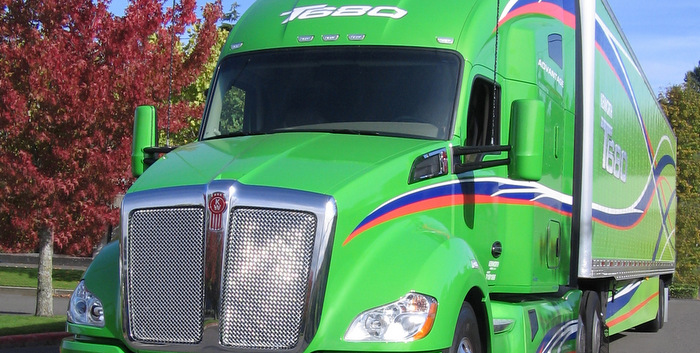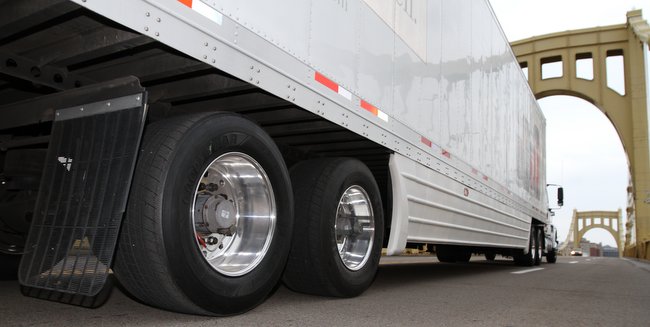December heavy-duty trailer orders at near record level
FTR reported that December U.S. trailer net orders were recorded at 45,500—the second highest month ever recorded. Trailer orders for 2014 totaled over 360,000, by far the best order year ever, according to the research firm. The company noted that dry van orders set an all-time record, as OEMs aggressively sought orders to book into
North American Class 8 orders again top 40,000 in December
FTR released preliminary data showing December 2014 North American Class 8 truck net orders at 43,620, the third consecutive month above the 40,000 level. According to the research firm, December’s order strength, unlike the previous two months, was broad based among OEMs, with almost all manufacturers showing healthy increases from the previous month indicating an
What the suspension of the 34-hour restart means to capacity utilization
According to FTR reports, it now looks like opponents of the FMCSA’s restart regulations have succeeded in attaching a provision to the current Federal funding bill that will suspend the recently changed 34-hour restart regulations pending a study of its effects. At issue is the requirement to have nighttime sleeping periods during the mandated rest
Persistent capacity shortages affect shippers conditions
FTR reported that its Shippers Conditions Index (SCI) for September was -6.6, basically unchanged from the previous month. The index reflects continued capacity shortages that degrade service and push rates higher, said FTR. With sustained capacity tightness and fleets now announcing pay increases, FTR expects that the cost to ship goods will remain elevated. FTR
Trailer orders hit record high
For the month of October, FTR reported U.S. net trailer orders at 46,267, an all-time record high, beating the previous record by 9%. According to the research firm, trailer orders have now totaled 327,000 the past 12 months. FTR suggested that expected tight production capacity at trailer OEMs in 2015 encouraged early order activity. “While
Kenworth aims to meet fleet needs with T680
Gary Moore, Kenworth general manager and PACCAR vice president, says that there are several economic trends affecting our industry: “U.S. housing starts and automobile production have shown solid growth in 2014. These are important indicators as almost everything needed to build houses and manufacture automobiles is shipped by truck. Those factors, combined with the stronger

Trucking conditions stabilizing at high level
FTR’s Trucking Conditions Index (TCI) reports an increased reading of 9.10 for August, continuing an upward trend that reflects an uneasily tight capacity situation. As market tightness continues, rate and service spreads are increasing between “good” and “bad” freight, said the research firm. Added the company, carriers are experiencing demand levels for their services that
Increasing transportation costs leads to drop in Shippers Condition Index
FTR’s Shippers Conditions Index (SCI) for July fell 1.3 points from the previous month to a reading of -7.8, reflecting tightening truck capacity and a strong upward move in contract pricing ahead of the fall shipping surge. According to the report, contract markets are beginning to show their first significant reaction to the driver shortage
Trailer orders remain strong in august
FTR, the Bloomington, Ind.-based leader in freight transportation forecasting, is reporting solid August net trailer orders at 23,135 units, a 27% increase from July and 45% above a year ago. According to data collected by FTR, orders were particularly strong in the refrigerated van, dry tank and dump trailer segments. FTR reports that much of

Report indicates extreme pressure on available capacity with accompanying rate hikes
FTR’s Trucking Conditions Index (TCI) reports an increased to a reading of 8.49 for July, one of the highest points this year. According to FTR, the high values reflect rising prices and service lapses caused by the current capacity crisis. The TCI could go even higher this fall if the economy accelerates as expected. Truck
